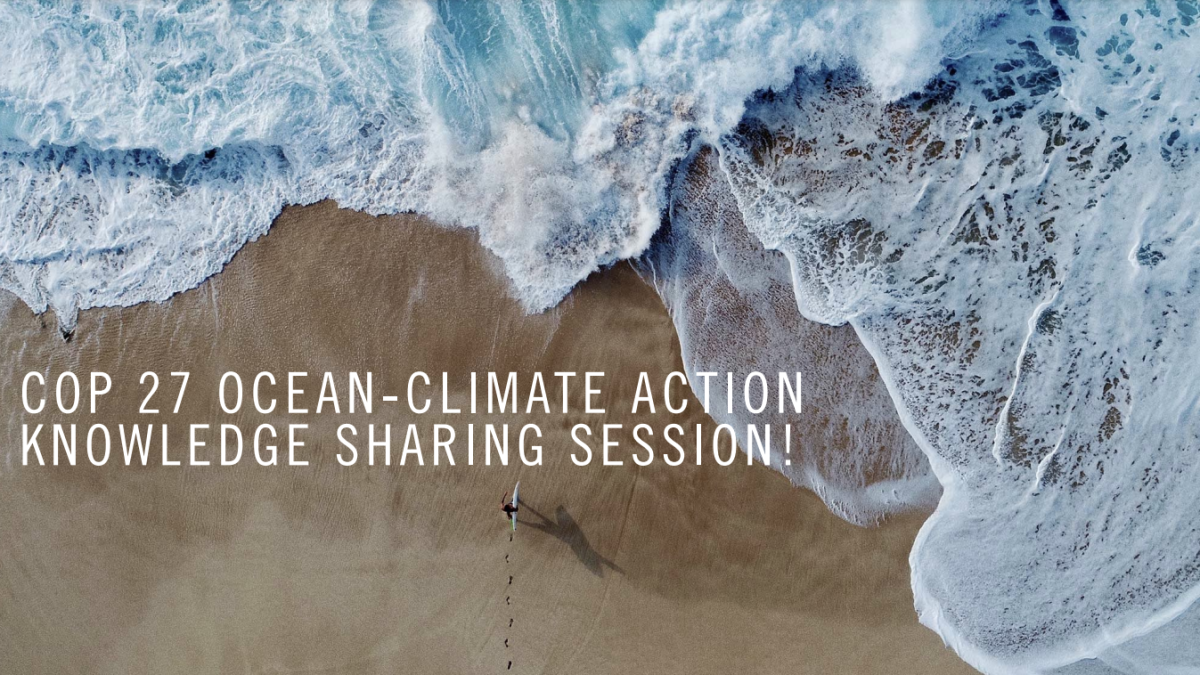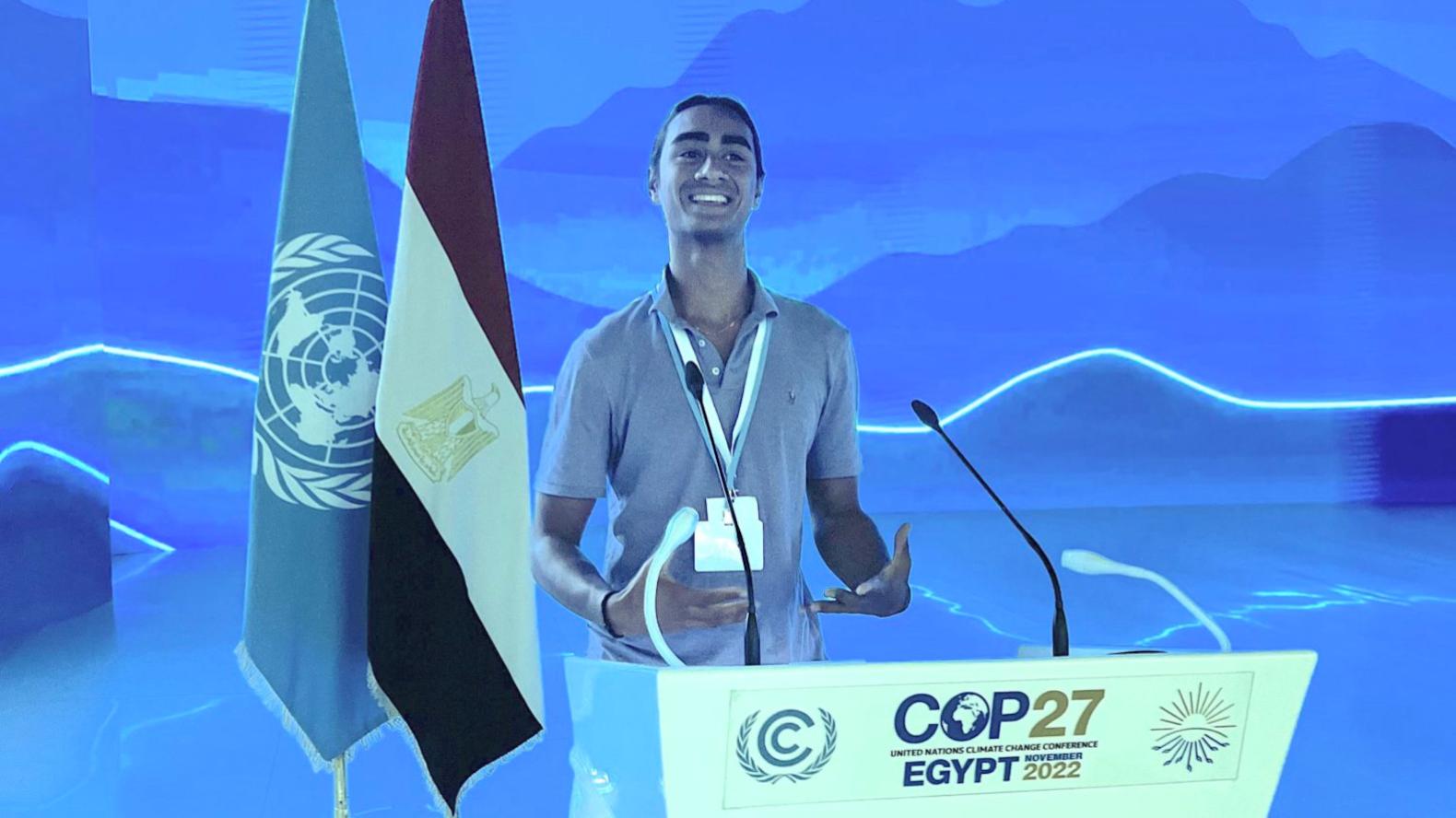
[Original source article: ECOP Programme]
Bodhi Patil is a young ocean climate solutionist passionate about the interconnection between Ocean Health and Human Health (OHHH). As the founder of Inner Light, co-creator of @oceanuprise, co-founder of Sea Dragon Studios – One World Breath, co-winner of the UN Oceans Conference Youth & Innovation Forum, and United Nations esteemed young leader, Bodhi supports young people to create impact at scale. He is a Youth Advisor for OnDeck Fisheries AI, World Ocean Day, and Break Free from Plastic Pollution. He is actively working on a Meaningful Youth Ocean-Climate Action strategy with various UN constituencies, UN Global Compact and youth partners. He is a second-year student in the BA + Masters of Management program at the University of British Columbia studying oceans, climate action, and business.
We recently spoke to Bodhi, who is an ECOP Canada member. about his work in the Youth-Ocean-Climate space. In the first, of a two-part interview, he reveals the depth of his emotional connection to our Planet's Ocean and how he has been advocating on behalf of Youth to become more involved with Intergovernmental decision-making processes.
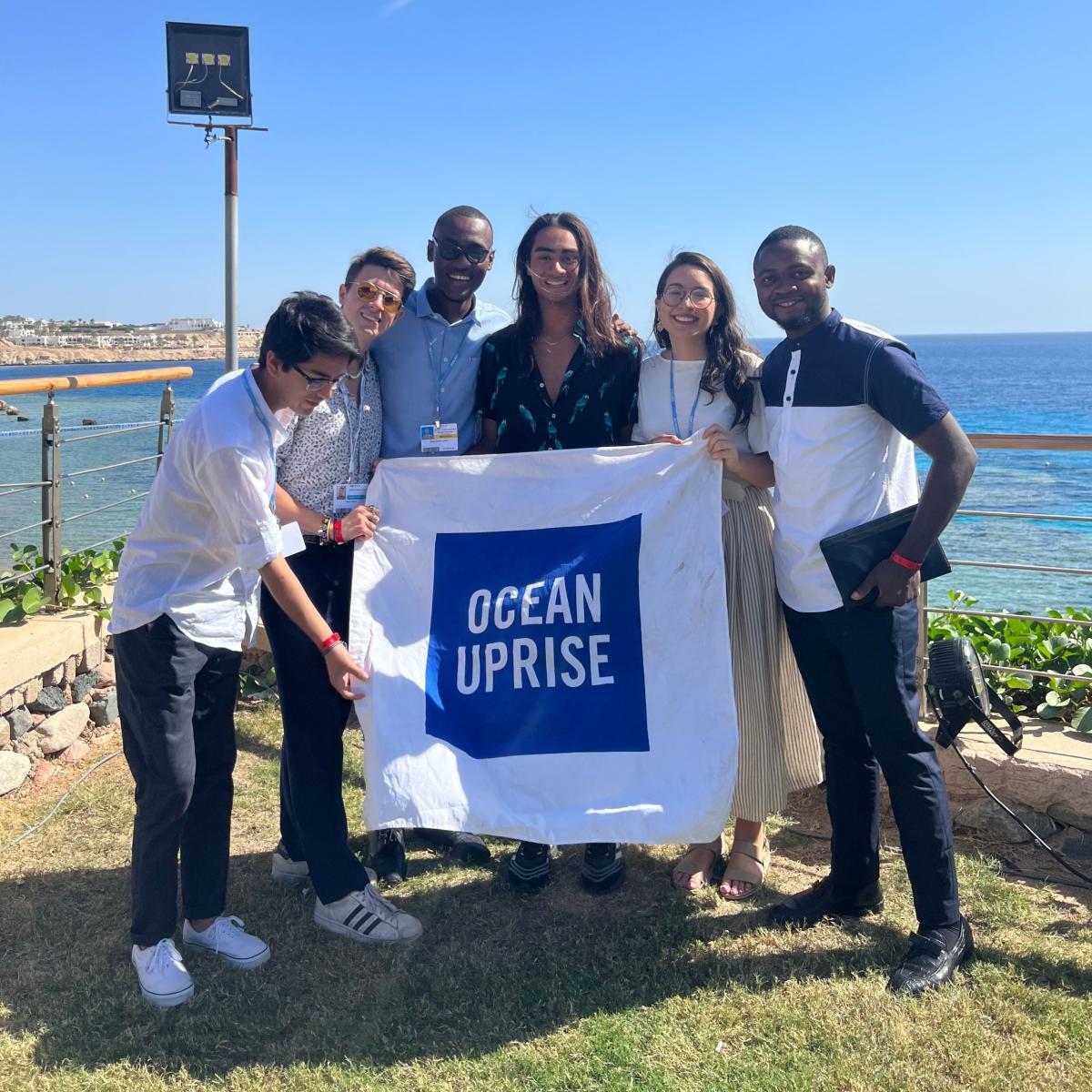
Hi Bodhi! At the ECOP Programme we’re working to connect, strengthen and elevate the diverse voice of Early Career Ocean Professionals around the World; can you tell us how and why you got involved with campaigning on Ocean issues specifically, what’s your background and what has been your journey to get to this point?
My journey in protecting the ocean started from a childhood joy of playing in the tide pools of Point Roberts Washington, the pristine beaches of Bali Indonesia, and the water parks of Washington DC. Uncovering crabs under barnacle-covered rocks, manta rays in blue lagoons protected by barrier reefs, and finding peace in urban blue spaces, sparked my deep connection to water. As a global citizen and international traveller from an early age, I fell in love with the ocean and felt how it truly connects us all and the living shared ecosystem we inhabit. This deep sense of love and connection towards water, the lifeblood of our planet, remains the driving force for my ocean-climate solutions building.
After noticing how ocean/waterbody health was being affected in my local watershed, I wanted to take part in improving it. I was tenacious and persistent in reaching out to ocean conservation groups and landed the perfect opportunity with Parley for the Oceans – to co-create, build and revolutionize a creative youth-led platform for ocean-climate action – Ocean Uprise.
Ocean Uprise (OU) is a creative activist community, created by youth, for youth, where passionate young leaders from around the world come together to learn, connect, and take action to protect the oceans. Programs like the OU Internship (https://www.parley.tv/ocean-uprise/internship), which bring together youth from around the globe to identify their skills, and community and create their passion project, is the door into an ocean of possibilities within the marine conservation area, and open for any young ocean leaders to join!
While building Ocean Uprise and learning about ocean solutions from experts around the globe, I realized that systemic change and Intergenerational Collaboration are critical to addressing the multifaceted challenges young people face. From this childlike joy and newfound knowledge of the disproportionate impacts of climate change, I became a fierce advocate for young people to be included in decision-making processes at the UN, UNFCCC, UNEP, UNDP, and UNSG levels.
Building off grassroots platforms, I was able to tap into international fora like the UN Oceans Conference, Blue Climate Summit and NYC Climate Week, working side-by-side with financiers and industry leaders for ECOP inclusion and co-design within ocean innovation. Since then, I have co-won the UN Oceans Conference Youth & Innovation Forum, become the Chief Impact Officer at OnDeck Fisheries AI, co-founded Sea Dragon Studios – One World Breath, and serve as a youth advisor for Sustainable Ocean Alliance, Coral Morphologic, UN Global Compact Ocean Stewardship Coalition, Coextinction, Roots and Shoots, Peace Boat, World Ocean Day, Break Free from Plastic Pollution and others. Working alongside love-based ocean-climate action organizations that are building systems which advance ocean innovation is where I believe that I can maximize impact.
As a second-year student in the BA + Masters of Management program at the University of British Columbia studying oceanography, climate action, and business, I strongly believe in the power of ocean literacy and education. Within academia, I am working on an Ocean Stewardship chapter for a textbook on improving Oceans and Human Health (OHH). Alongside incredible mentors like Lora Flemming from the University of Exeter and Wallace J Nichols of Blue Mind, I am learning how to improve ocean and human health outcomes within academic institutions through knowledge and sharing best practices.
This has taught me that radical collaboration between universities, the government, and the private sector is needed to revolutionize curricula and empower student bodies to protect the places that they love. Learning from Indigenous Rightsholders, I know that “we stand on the shoulders of our ancestors.” This keeps me humble, kind, fierce, and with a lovingly-powerful heart in conservation work. I believe that those are the root values needed for ocean conservation and planetary regeneration.
A large part of your work centers on the voice of YOUTH, why do you think it is so important that young people are heard, and that there is a strong dialogue between young people and the older generation/those in power, especially when it comes to Ocean and climate governance.
My focus is on addressing the need for Intergenerational Collaboration and the capability of young people in decision-making spaces. This approach combines the knowledge and experience of adults with the tenacity and passion of youth and creates opportunities for increased youth funding, mentorship, and internships in ocean-climate action.
The ocean & climate platform is an ECOP organization leading in ocean governance and ocean policy-making spaces. The #OceanForClimate platform is 90 members strong in promoting reflection and exchanges between the scientific community, civil society and political decision-makers. The ocean outcomes are as follows:
• “France expressed its support for the prohibition of seabed exploitation.
• The Egyptian presidency, together with the Government of Germany and the IUCN, launched the ENACT Initiative (Enhancing Nature-based Solutions for an Accelerated Climate Transformation) – which will coordinate global efforts to address climate change, land and ecosystem degradation, and biodiversity loss through Nature-based Solutions (NBS).
• The Netherlands has introduced the Champions Group for Deltas and Coastal Zones which will seek to harmonize action between countries and Small Island States to realize sustainable management of deltas and coastal zones in the short and medium term – and to provide area-specific advice to countries on the integral implementation of their National Adaptation Plans (NAPs) or national climate adaptation strategies.
• Several steps forward have also been taken for blue carbon ecosystems. Mangroves have been the object of financial commitments, with the launch of the Mangrove Breakthrough: an investment target of USD 4 billion to secure the future of 15 million hectares of mangroves globally by 2030. This breakthrough will build on collective action to halt mangrove loss, restore half of the recent losses, double the protection of mangroves globally, and ensure sustainable long-term finance for all existing mangroves. The recently launched High-Quality Blue Carbon Principles and Guidance outline the conditions for high-quality blue carbon projects and credits to ensure accountability, sustainability, and transparency in the marketplace. This aligns with growing demands for blue carbon credits that continue to attract many new actors and have been valued at over USD 190 billion per year and estimated to reduce costs associated with impacts such as flooding by over USD 65 billion annually.”
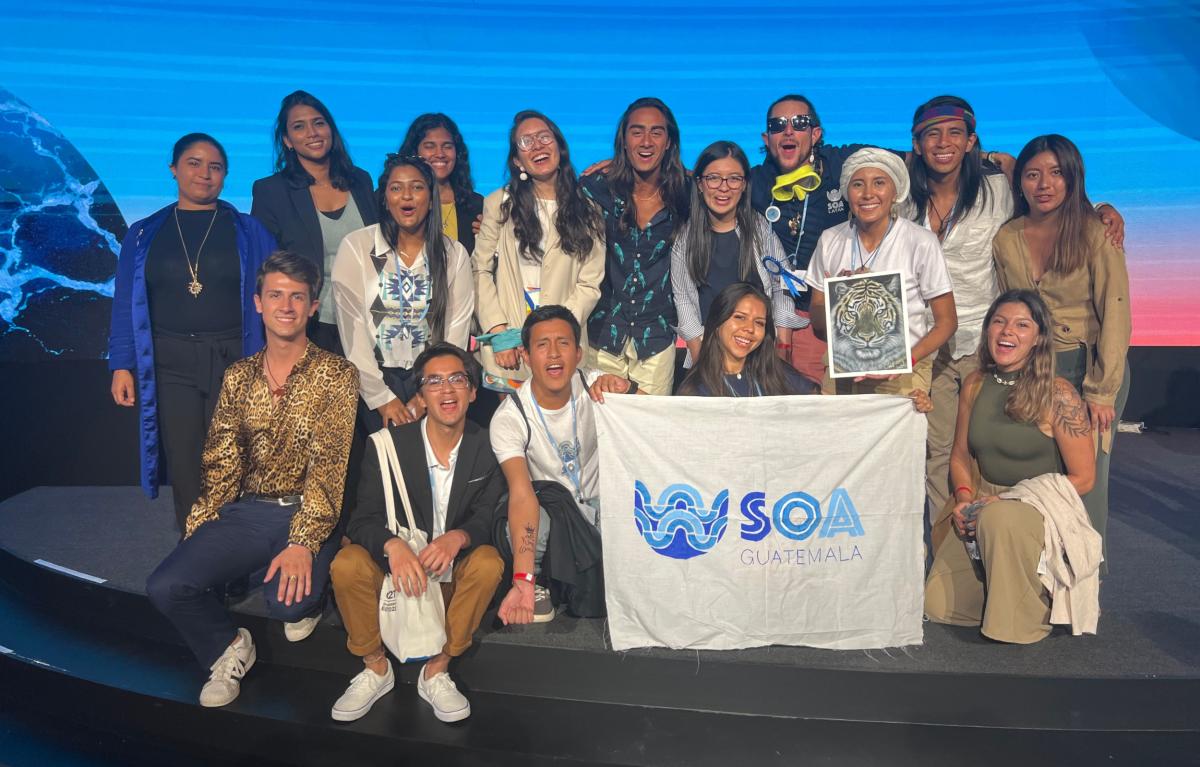
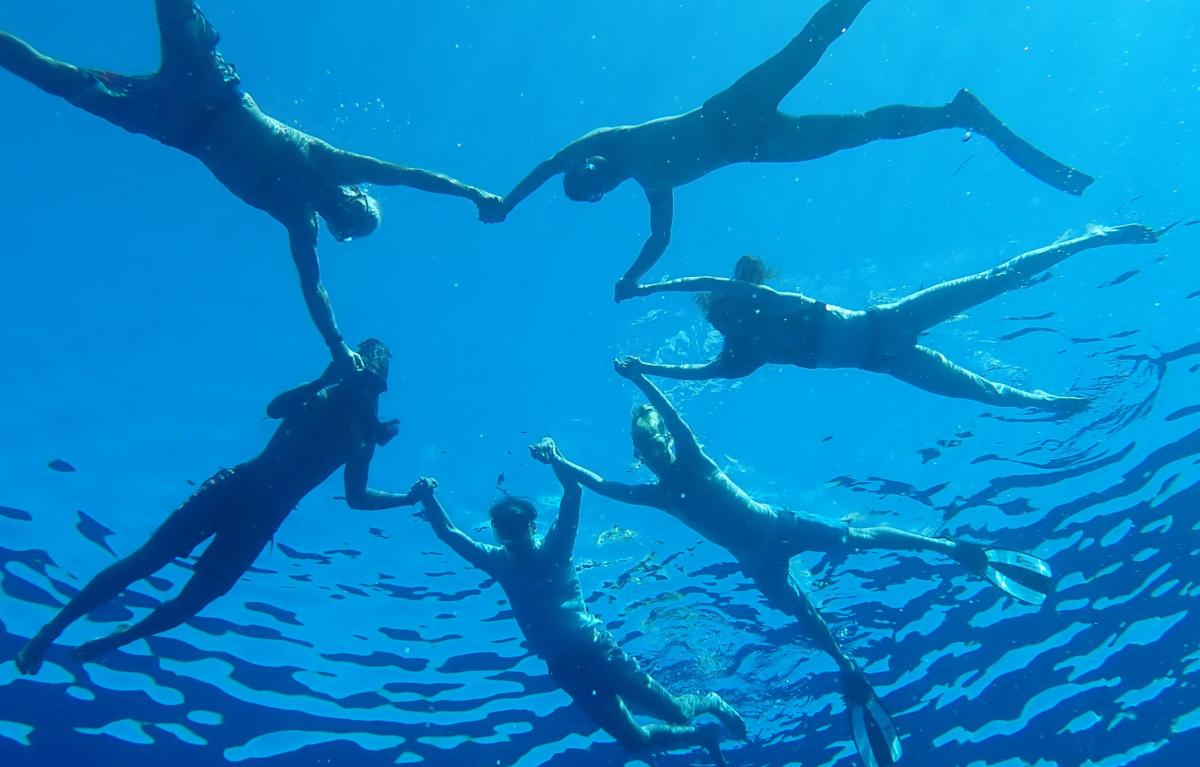
The ocean-climate alarm bells are ringing. And, current decision-makers are leaving GenZ & X, the planet’s most valuable but undervalued human resource and intelligence behind. This, we cannot afford. Many of today’s wealthiest companies were started by young people in their 20s. Many globally significant environmental organizations too. These have transformed all aspects of our world. Young people have the energy to co-create, act and pivot on their, your, and our vision for a better, more efficient, climate-smart and loving world.
Intergenerational collaboration with joint decision-making may just become the lovingly powerful partnership and tool we need for ocean-climate transformation. I do not doubt that Mother Nature would approve.
So, how do we get there? Five things I’ve been advocating for international conferences that have been getting traction:
1. Create and deploy 360-degree mentoring programs
2. Place young people on executive boards and in c-suite, executive positions
3. Provide finance for youth-led innovations within organizations and institutions
4. Offer equitable and paid internships for marginalized youth and those most disadvantaged
5. Create an intergenerational task force for ocean-climate action and solutions
Intergenerational collaboration, cooperation, and co-creation will lead to a healthy planet and people. We are all in this together.
You recently attended COP27, how did this opportunity arise and what was your role there?
I approached COY17 and COP27 with an attitude of positive realism. A balance between bringing uplifting energy and being an inquisitive and well-informed critic. This approach unlocked many doors, insights, and opportunities. Namely, wider support for ocean organizations to finance, build programming, and capacity for young ocean guardians to learn, grow and scale up local community-led action initiatives to global forums. With sponsorship from the Captain Planet Foundation, I was able to attend COP27 and make waves by disrupting inefficient processes and adding a strong youth voice to slow-moving dialogues and static sessions.
As planetary warriors we oftentimes find ourselves burning out as a result of the non-stop and insurmountable problem of climate change. I was able to stay fresh and sharp, with a mind absorbing information like a sponge (for the most part haha) by diving and replenishing my soul in the Red Sea. Going into the crystal blue water was the most magical reset, an automatic way to fill up my tank of love and feel ready to kick-butt amongst negotiators, industry leaders, and innovators!
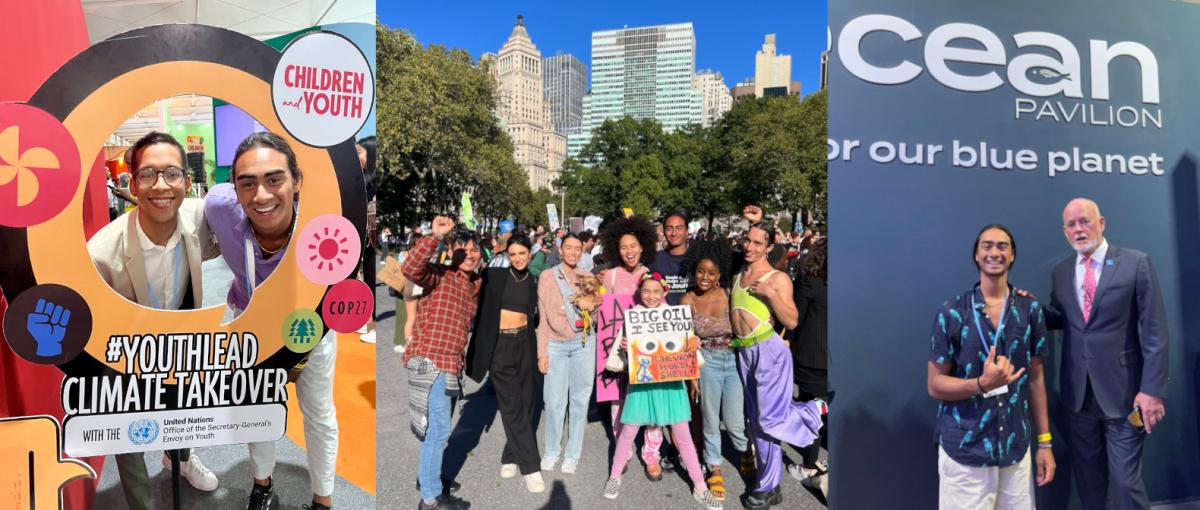
Photos from COP27, including (no.3) Bodhi with Peter Thompson, UN Ocean Envoy and a strong advocate for Intergenerational collaboration.
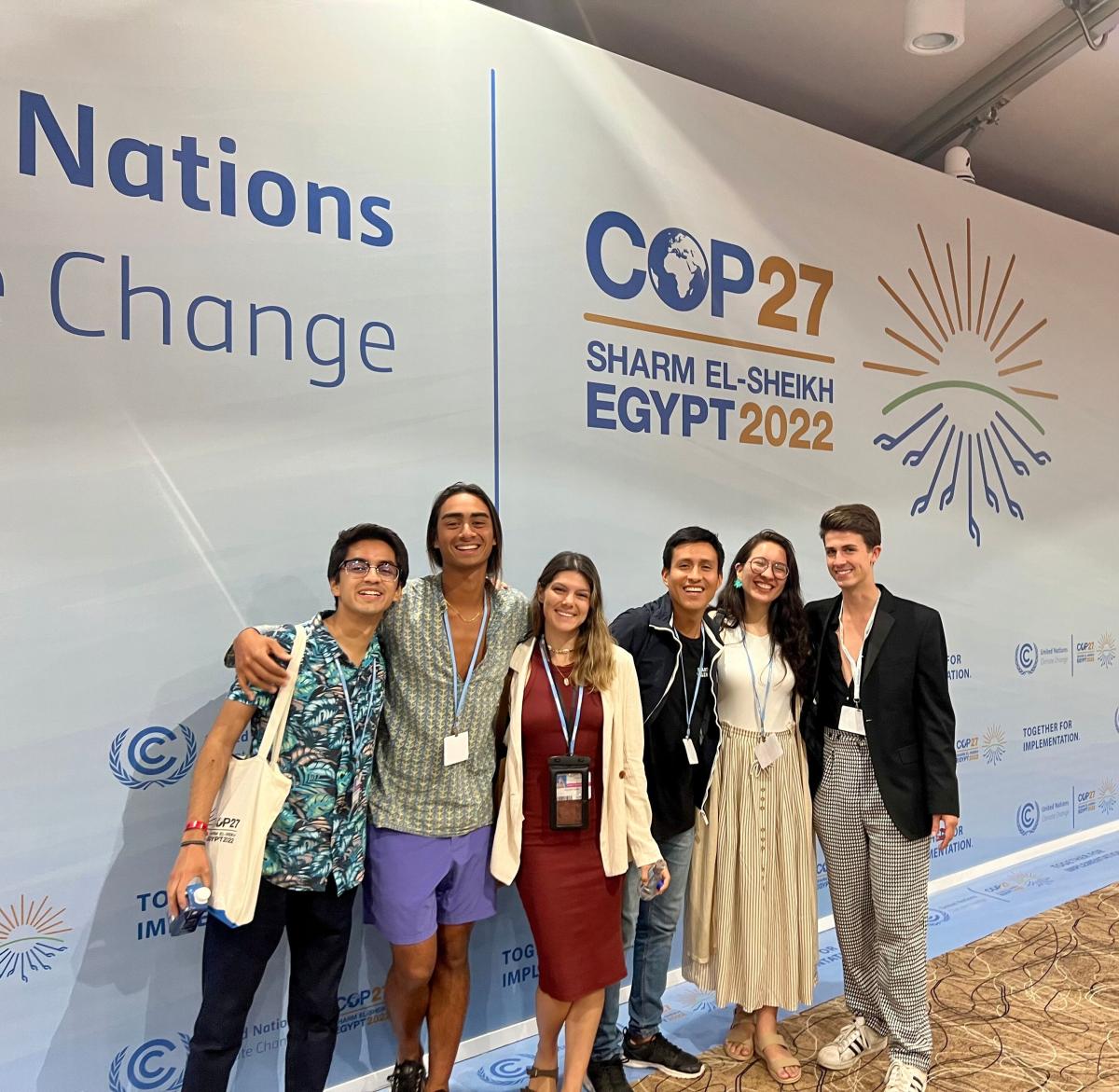
What are some of your reflections from COP27?
COP27 threw me into the deep end. Fortunately, I love the deep end. It’s one of my favourite places to be, with no bottom in sight, just deep blue beneath me. A canvas of limitless potential and discovery. An opportunity for learning and growth. A chance to disrupt the entire system and re-create systems where people and the planet live in symbiosis.
This COP my fellow young ocean-climate leaders and I shine bright. Our projects were featured within UN panels, high-level side events and through powerful art exhibitions. We had fun, bringing incredible childlike joy to a space of such serious energy. Through our songs, dance, and inquisitiveness, we created more positive outcomes. Many climate executives, ocean solution experts, and UNFCCC leaders expressed their continued support for youth funding, mentorship, and internships for holistic climate education/empowerment (integrating all parts of the living earth system, especially the ocean).
Within the complexity of highly technical negotiation on NDCs and loss and damage, to the grassroots movements demanding the criminalization of ecocide, human rights violations and climate injustice, COP was a hotbed of competition, collaboration, and new knowledge. A huge win was established as a loss and damage fund agreed upon by the parties to support countries most affected by the environmental inequity of climate impacts and particularly vulnerable countries in the global South will be implemented. However, questions remain to be answered regarding addressing the operation, implementation, and execution of this fund. Furthermore, increased global support for a climate resilience/adaptation fund for SIDS “large ocean states', coral conservation, coastal stewardship, and Indigenous rights was led by a groundswell of activists on-the-ground at COP27.
It is easy to say that COP27 was a complete failure. In my experience, there were many wins as the ocean-climate dialogue will be strengthened within countries' NDCs, young people will have a larger platform in joint-decision making with the launch of the Children and Youth Pavilion, the Ocean Pavilion reached a massive audience, and increased finance was offered towards ocean solutions from philanthropists, government, investors, and industry accelerators. The biggest win of all was forming an Intergenerational task force of Ocean-Climate warriors who will continue to relentlessly fight for Ocean Health and Human Health in their lives, careers, and communities. The power of grassroots movements, Indigenous groups, youth constituencies, and ocean-environmental justice activists shone brightly at COP. As an ECOP, being able to add value, contribute youthful joy and urgency, and share tools to empower young people was essential to sowing the seeds for a more just and ocean-climate-literate world. It is a great honour to be a part of this global ocean community and help accelerate Intergenerational Collaboration and meaningful youth participation.
How are you incorporating Ocean Optimism into your work? Can you give us some examples of what you're proud to have achieved in 2022, or who are you grateful to be working with?
To me, ocean optimism is about approaching all aspects of life with a positive, creative, and collaborative attitude. It is imperative to incorporate ocean optimism into conservation and ocean finance work to learn from the best practices of bright spots. The TOP 8 biggest bright spots of 2022 for youth-led ocean-climate action are:
1. Youth ocean solutions like One World Breath, Ocean Uprise, Sustainable Ocean Alliance, Earth Echo, Youthtopia, UN1FY, MyEffect and others that are scaling up and making an impact at international fora.
2. Establishment of the UN Youth Office
3. Oceanic Global Ocean x Climate Summit
4. Youth ocean-climate health solutions and declarations that came out in full force at COP27 led by Islands 2030 Network, GLISPA, and AOSIS for Large Ocean States
5. The Global Fund for Coral Reefs (GFCR) and XPrize Coral Reef Restoration Challenge
6. Indigenous-led biodiversity and storytelling platforms being elevated like Nia Tero, PISFCC, Health in Harmony, Tetiaroa Society, and Polynesian Voyagers Society
7. STOP ECOCIDE International and the Fossil Fuel Non-Proliferation Treaty pushing for more systemic change to divest and criminalize fossil fuel extraction
8. MORE meaningful spaces for young people in Intergenerational Collaboration and Joint-Decision Making!!!
I am incredibly honoured and grateful to be able to work with Professor Lora Fleming from the University of Exeter on an Oceans and Human Health Case Study in a second-edition textbook. Professor Lora Fleming is a founder of the European Centre for Environment and Human Health and Chair of oceans, epidemiology and human health at the University of Exeter Medical School. She is a board-certified occupational and environmental health physician and epidemiologist with over 30 years of experience and expertise in environmental and occupational exposures and human health research and training.
Without asking for and receiving her support, mentorship, and advice, these opportunities would not have been made fully available to me.
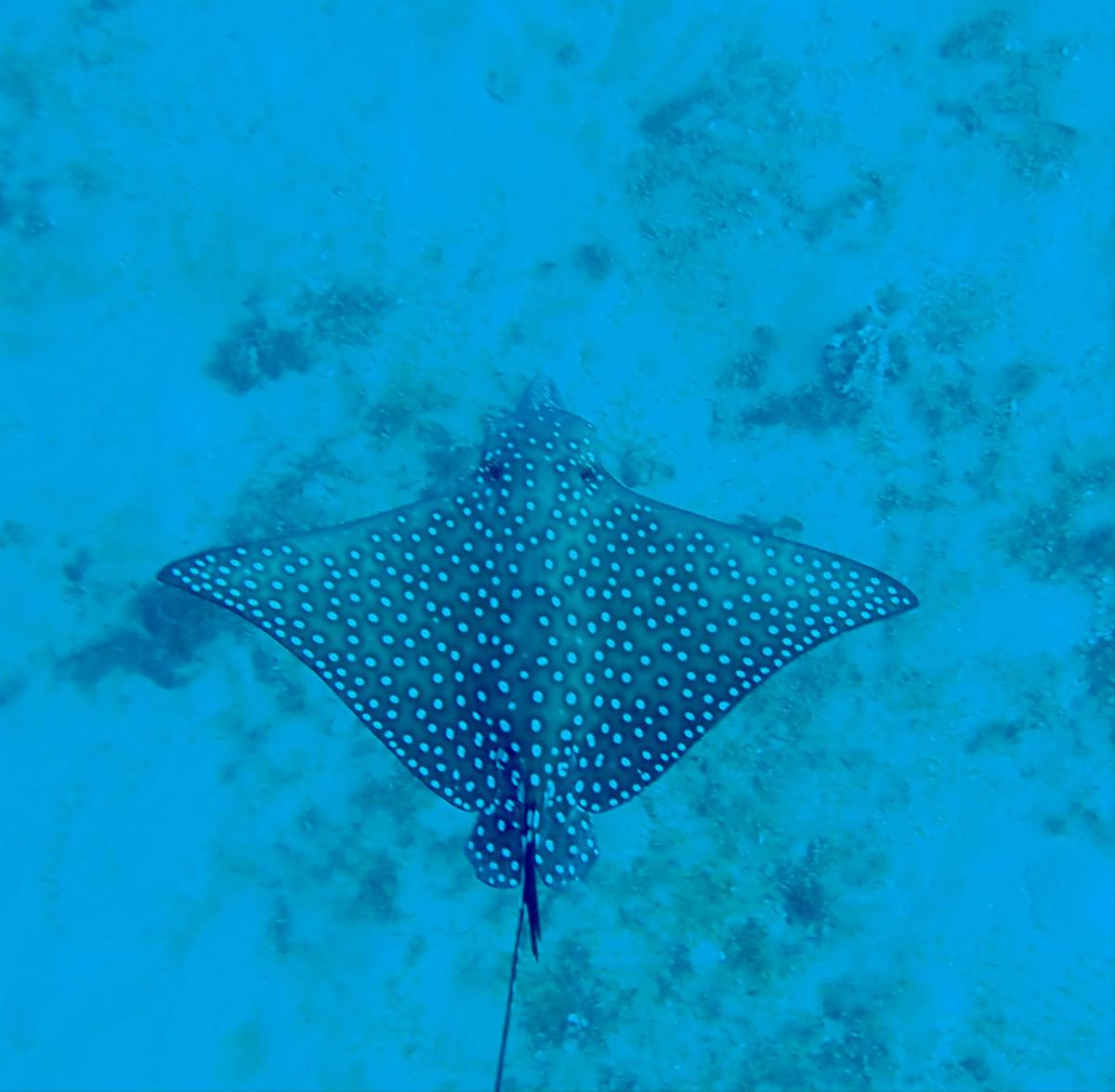
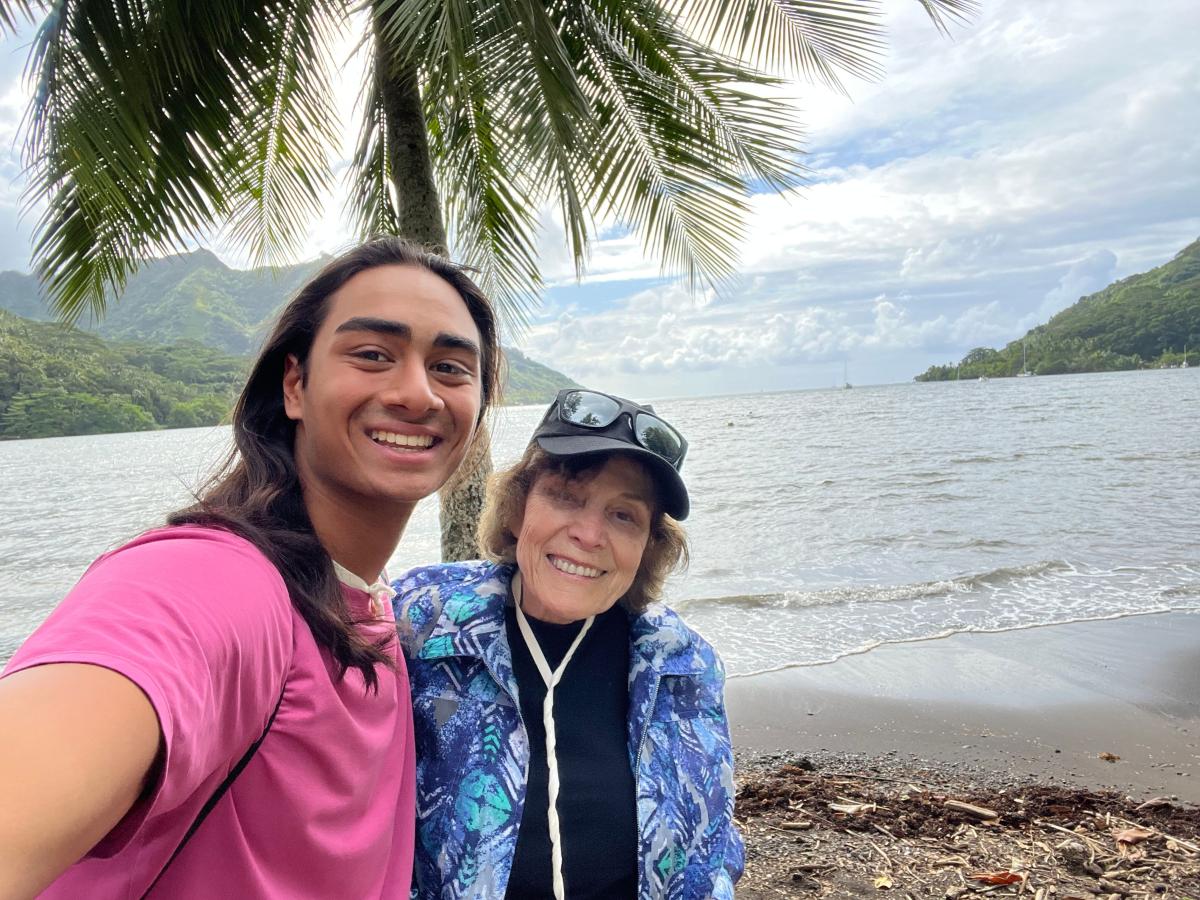
Tell us what's next for you, what are you excited to create in 2023?
The top ocean solution opportunities on my radar are:
1. IMPAC 5 in Vancouver BC, from February 3-9.
2. OOC Panama from March 2-3.
3. Volunteering with Tetiaroa Society to serve as an Island Guardian on a remote atoll in French Polynesia, learning from Indigenous stewardship practices.
4. Creating a short film expanding on One World Breath, the youth ocean-climate connection movement alongside Craig Foster (My Octopus Teacher) and Jane Goodall.
5. Improving UBC’s Climate Emergency Plan of action within the ocean and climate-focused departments and empowering students to be Ocean Guardians.
6. Creating jobs for young people to work with OnDeck Fisheries AI to improve fishing monitoring and revolutionize the fishing industry! We are openly hiring so please be in touch!
7. Bringing young people into coastal adaptation projects like the IUCN Great Blue Wall Initiative, working with the Minderoo Foundation to finance material innovation and plastic alternatives, and supporting the XPrize on Coral Reef Restoration make huge waves!
8. Hopefully, become a National Geographic young explorer and create storytelling projects alongside Nia Tero that capture the incredibly powerful inextricable connection between ocean health and human health.
9. Launch the BC Oceans Hub! We are excited to announce that several ocean networks that aim to empower youth in Canada, Sustainable Ocean Alliance, ECOP Canada (the Canada node for the Global ECOP Programme, endorsed by the UN Ocean Decade), Ocean Uprise, and Ocean Wise are coming together to supercharge your local community to support ocean solutions!
10. Engage now with the Conservationist Collective’s Ocean Health and Human Health Toolkit and the Find Your Place Learning Hub (for all the educational ocean-climate literacy materials you need. :)
11. Learning and growing with Indigenous wisdom and hands-on applied restoration projects to improve blue carbon ecosystem health (#team kelp) and water-based communities.
12. Intergenerational Collaboration for ocean-climate action. Cross-disciplinary knowledge sharing. Learning from Ocean Stewardship practices led by Indigenous people.
Bodhi created a presentation and beautiful visuals that will walk you through some key ocean-climate takeaways of COP27 LINKED HERE. Want to get involved as an ocean guardian and planetary steward? Some fun and impactful ways to get involved in climate action within the UBC community and beyond can be found here. Feel free to add to this list of helpful resources and incredible ocean innovations! We all have a role to play in protecting our shared planet, so learn more and get involved today!
